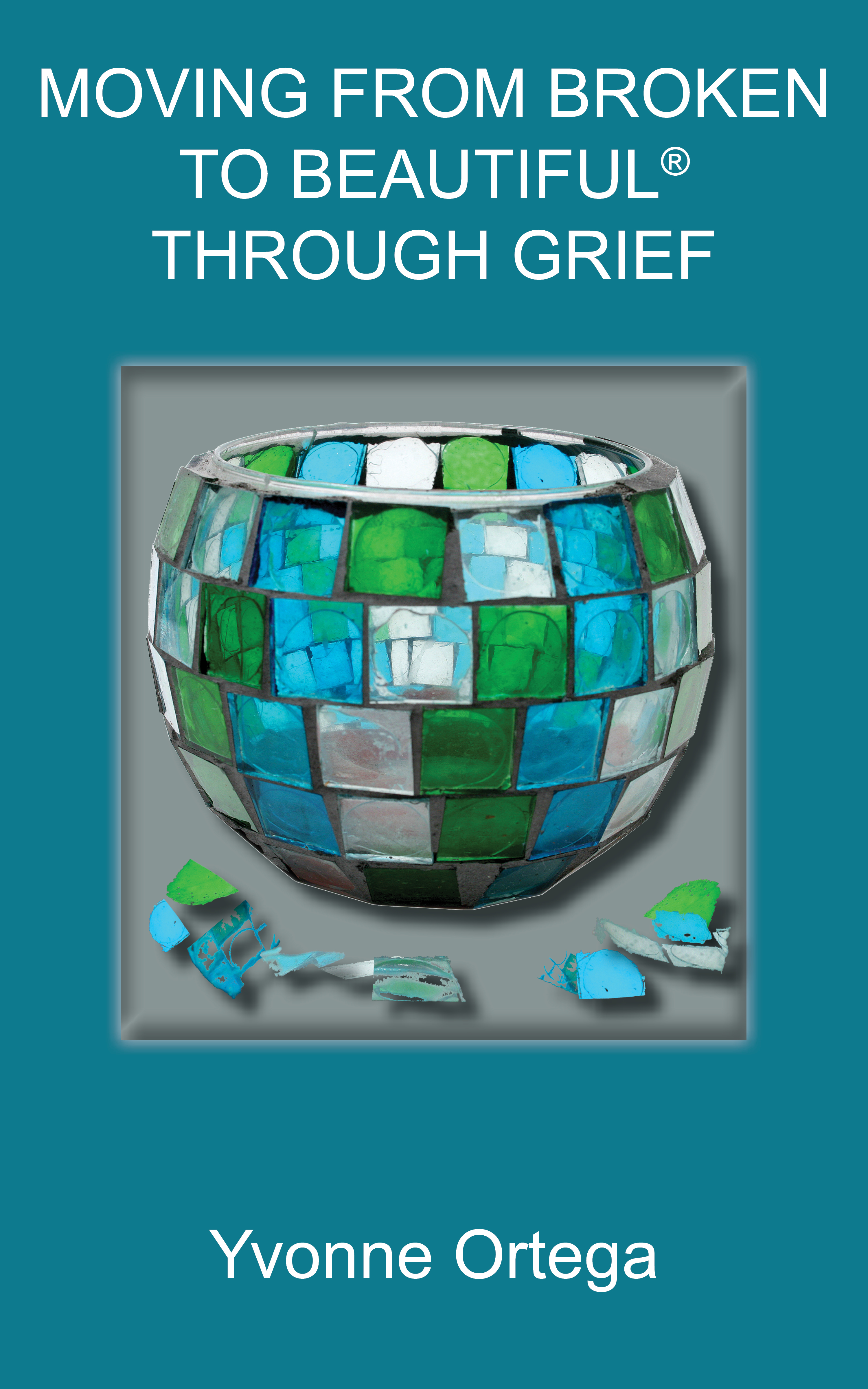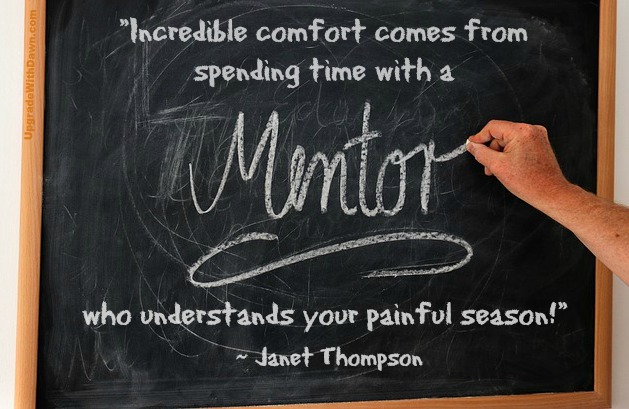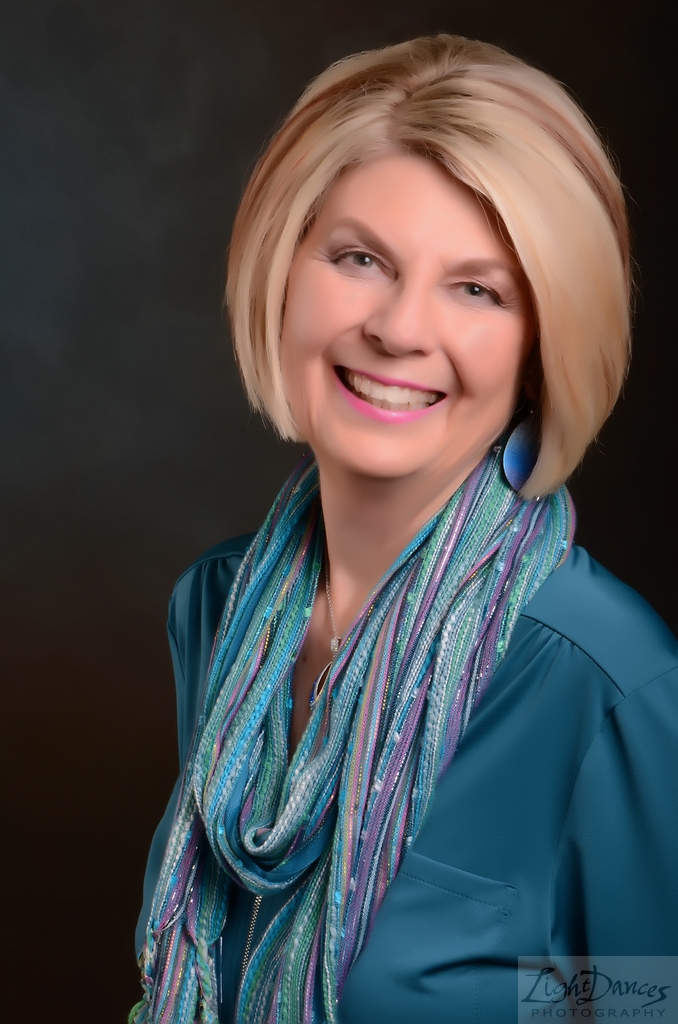Be Thankful—God Loves Ewe!
In this Spiritual Growth UPGRADE, Pam Farrel encourages us to upgrade our lives with a little help from the Good Shepherd.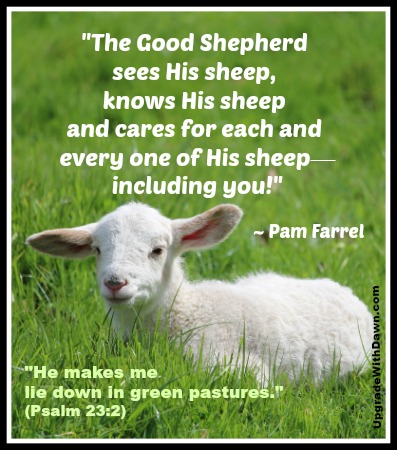
“Our Good Shepherd pursues us to give his faithful love and all things beautiful and beneficial,” Pam says.
I (Dawn) have watched Pam in ministry. She knows a little about shepherds and sheep—the kind that go "baaa," and the human "sheep" who struggle and cry out to their Shepherd.
Pam continues . . .
I am a true Bo Peep. I grew up on a Suffolk sheep farm in Idaho.
I was a fourth generation shepherd. If there is something I am familiar with, it is sheep!
So when I read Psalms 23, one of the most familiar of all Psalms, it is very personal, encouraging and comforting.
You may also need comfort or encouragement in your own life right now. There are a few qualities of your Good Shepherd that might encourage you, especially if you are feeling like you are traveling through the “valley of the shadow of death”.
1. The Shepherd is Personal
For example, the Psalmist’s opening line, “The Lord is my shepherd,” became more precious when I became a shepherdess. The relationship between a lamb and a shepherd can be a very close, caring and even sometimes, affectionate relationship.
For example, my first 4-H lamb was a “bummer,” meaning the mother had rejected or abandoned her own offspring.
These kinds of lambs need extra attention, so I fed my little lambie with a bottle twice a 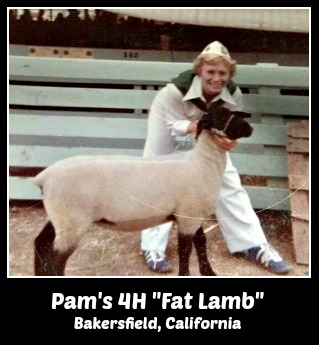 day, holding her in my arms like a baby.
day, holding her in my arms like a baby.
I carded her wool, I hand fed her grain, I walked her, and yes, I talked to her.
On cold nights, I tucked her into a warm pen, and if I heard howling wild dogs or coyotes, I got up to go out to check on her.
I also named her, “Bunny” because when she wasn’t in my arms, she would delight herself jumping from rock to rock in our pasture. Ours was an “everywhere that Pammy went her lamb was sure to go” kind of relationship.
2. The Shepherd is a Protector
It is really a picture of my grandfather, father and brother, and their vigilance that I carry in my mind as to what a truly protective good shepherd is like.
Ravenous coyotes, wolves and wild dogs roamed the vast expanse of high desert in the area our family farm was located. These savage dogs would attack and kills whole flocks of sheep in a single night.
To help us keep our sheep safe, we place collars with bells on them. If they we heard an occasional gentle chime we knew our sheep were simply grazing calmly, but if we heard a cacophony of loud jingling, we knew the wild dogs were near by threatening an attack.
To protect the sheep, the men in my family would post themselves in the pasture with the sheep. They would wrap themselves in a down sleeping bag with their “rod and staff” within arm’s reach. It was a cold, uncomfortable, thankless job, but it saved the lives of all our entire flock of sheep and their lambs.
To this day, when I picture my God as my Good Shepherd, I see Him as my strong, powerful and attentive protector.
3. The Shepherd is a Provider
When I read, “He makes me lie down in green pastures. He leads me beside still waters. He restores my soul" (vv. 2-3), that is exactly the experience of my upbringing.
- I would often walk barefoot through the deep, lush, green grass of the pasture, as the sheep serenely grazed.
- I would take a blanket and a Bible, and lie down and spend quiet hours communing with God.
- I might walk over to the creek, and sit on the simple wooden plank that created a bridge, and sit and rest quietly dipping my toes into the cool stream.
This was my place of solace and restoration, far away from the chaos my alcoholic, raging, earthly father might be creating in our small farm house.
To this day, resting in an open meadow, or the sound of gently tinkling chimes, remind me of the restorative rest the Good Shepherd can create even in the midst of chaos.
4. The Shepherd Is a Pursuer
As I have followed my Good Shepherd, I have seen how “goodness and mercy“ has surely followed me the days of my life.
One could phrase the meaning of “goodness and mercy” as “certainly what is good, pleasant, agreeable, beneficial, desirable, beautiful and best, as well as God’s faithful, loyal, lovingkindness will pursue you.”
Wow!
Our Good Shepherd pursues us to give His faithful love and all things beautiful and beneficial.
A recent example in my own life is the writing of this blog. It is an adaptation out of my newest book, Discovering Hope in the Psalms. I was going through one of my most challenging years of my entire life when my friend Jean asked me to edit, then co-author, this study with her.
See... my Shepherd sent goodness and mercy to pursue me, because He knew I was going to need to dwell in the green pastures of His Hope-filled Word to survive my own valley.
With the Shepherd, we can walk THROUGH the darkest valley and not tremble, because the Good Shepherd sees His sheep, knows His sheep and cares for each and every one of His sheep—including you!
What attribute of the Shepherd do you need, to hold on to hope?
Find a wool blanket, spread it in a green pasture near some still water, open your Bible and let the Shepherd send some goodness and mercy your way.
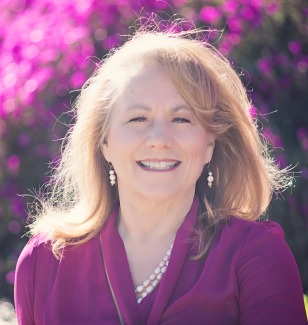 Pam Farrel is still a shepherdess at heart. However, instead of living on her family farm, she now travels the world shepherding people’s hearts and relationships by speaking and teaching God’s goodness and mercy
Pam Farrel is still a shepherdess at heart. However, instead of living on her family farm, she now travels the world shepherding people’s hearts and relationships by speaking and teaching God’s goodness and mercy 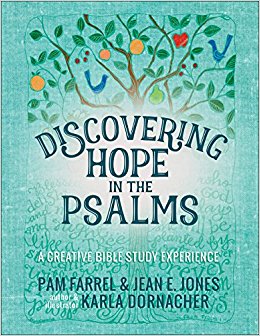 through the ministry she and her husband run: Love-Wise. She is the author of 45 books. Her newest is Discovering Hope in the Psalms: A Creative Bible Study Experience.
through the ministry she and her husband run: Love-Wise. She is the author of 45 books. Her newest is Discovering Hope in the Psalms: A Creative Bible Study Experience.
 Post a Comment → Posted on
Post a Comment → Posted on  Wednesday, November 22, 2017 at 9:00AM
Wednesday, November 22, 2017 at 9:00AM  God's Hope in the Psalms,
God's Hope in the Psalms,  God's Provision,
God's Provision,  God's care,
God's care,  God's protection,
God's protection,  Good Shepherd,
Good Shepherd,  Gratitude,
Gratitude,  Pam Farrel,
Pam Farrel,  Psalm 23,
Psalm 23,  Shepherdess Upgrade Your Life
Shepherdess Upgrade Your Life  Attitudes,
Attitudes,  Spiritual Growth,
Spiritual Growth,  Thanksgiving
Thanksgiving 









